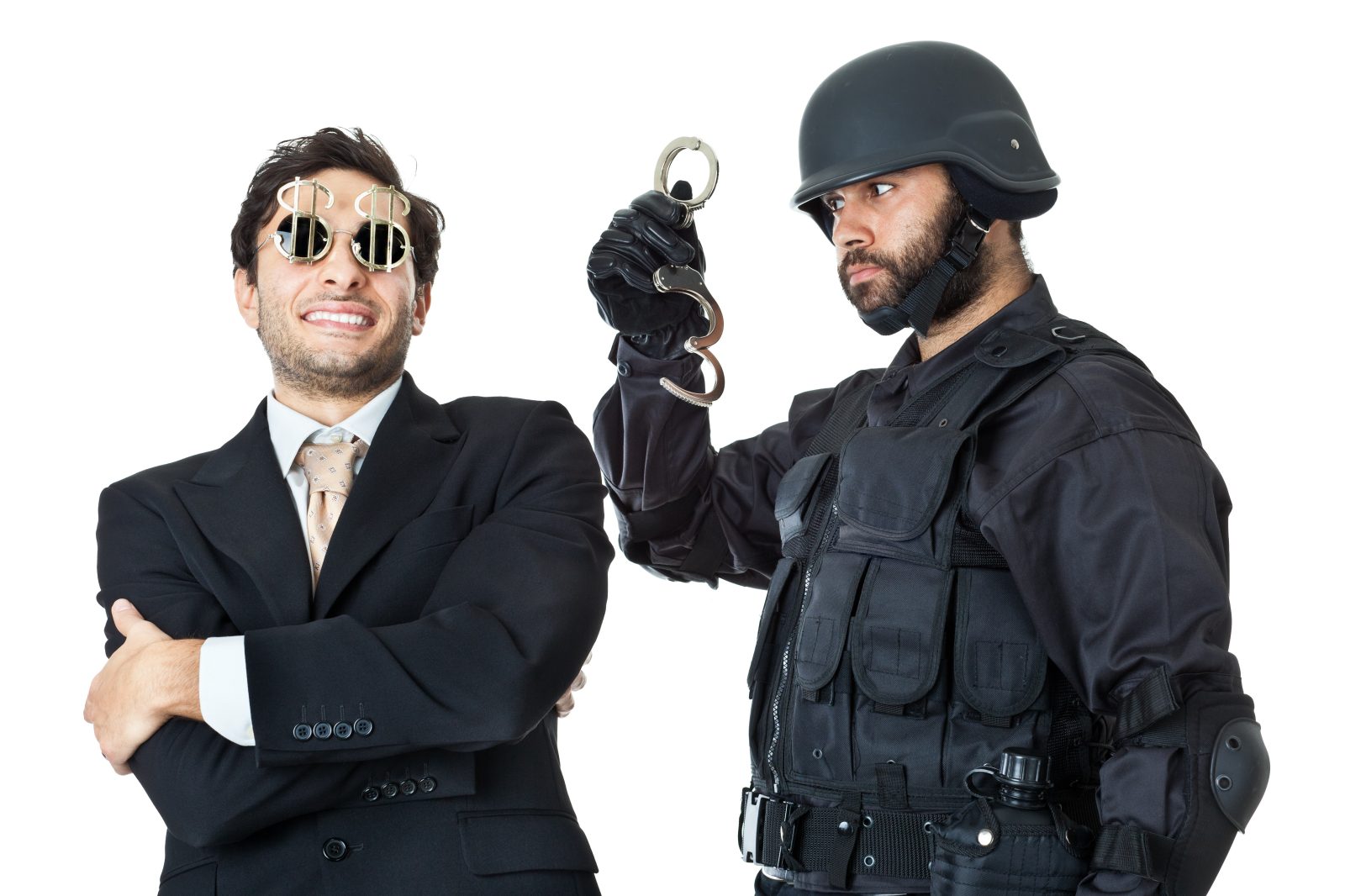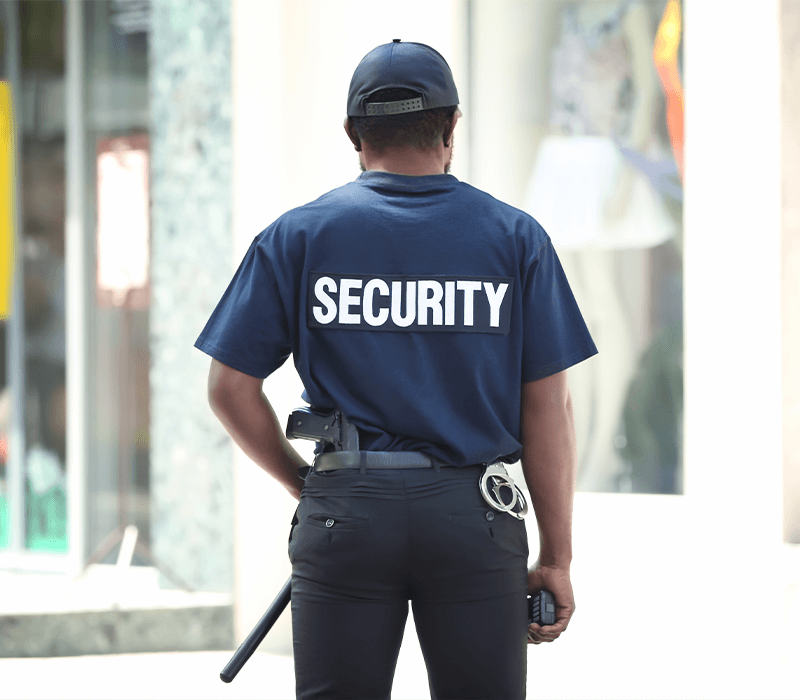Security guards perform a vital role in maintaining safety and order in various settings, including airports, hospitals, shopping malls, and even private homes. However, their actions and words also directly influence their effectiveness and reputation.
Security guards have a responsibility to communicate calmly and professionally, but sometimes emotions flare up, leading to verbal misconduct and lawsuits. In this article, we’ll overview situations that may warrant a lawsuit against a security guard for racist, offensive, or vulgar language. Then, we will discuss preventive measures that security guards and their supervisors can take to ensure they remain calm and polite at all times on the job.

Situations that Warrant a Lawsuit for Verbal Misconduct
Security guards interact with people from different backgrounds, cultures, and beliefs. Inappropriate comments, racial slurs, or threats can quickly escalate into legal action and tarnish a security guard’s reputation. Here are some situations that may warrant a lawsuit against a security guard for verbal misconduct:
Discrimination: Security guards must exercise impartiality and neutrality in their work. Discriminating against people based on their race, ethnicity, religion, gender, or sexual orientation will result in claims of discrimination and lawsuits against the security guard.
Harassment: Verbal harassment, such as making lewd remarks or offensive jokes, creates a hostile environment for the victim and also leads to lawsuits against a security guard.
Threats: Security guards must use communication to diffuse or prevent conflict, not heighten it. Threats, whether verbal or physical, can result in legal action and damage the reputation of the security guard and their employer.

Preventive Measures that Reduce Offensive Language
To prevent lawsuits against security guards for verbal abuse, it’s important to take proactive measures to ensure clear and respectful communication at all times. Here are some preventive measures that security firms can take:
Training: Providing comprehensive training to security guards on effective communication and conflict resolution techniques goes a long way in preventing verbal misconduct. Through education, security guards become aware of the importance of remaining calm and objective. As well as the consequences of inappropriate comments.
Policies and Procedures: Employers can also establish clear policies and procedures that dictate professional and courteous behavior by security guards. These policies should set expectations for respectful communication and outline disciplinary action for any violation of the policy.
Language Barriers: For security guards who interact with non-English speakers, it’s important to have access to a professional interpreter. Miscommunication and misunderstanding due to language barriers can result in conflicts and legal action.
Active Listening: Security guards must be active listeners and pay attention to the spoken and nonverbal cues of people they interact with. By understanding their needs and concerns, security guards will respond appropriately and effectively.
Roleplaying: Practice makes perfect. Employers can use roleplaying scenarios to help security guards to build their communication and conflict resolution skills. By simulating common conflict situations, security guards can learn how to respond calmly and confidently.

De-escalation Skills
Learn about all the different industries that our guards are trained in by reading over our industry expertise service page. Here at Lonestar Universal, we focus on training our guards with the necessary skills to de-escalate any situation. Here are some of the skills we focus on:
Professionalism
Our security guards undergo rigorous training to develop the skills needed to handle high-stress situations with composure and professionalism. Through simulated scenarios and roleplaying exercises, our guards learn how to manage conflicts, engage in active listening, and respond appropriately to verbal disputes.
We instill in our guards the importance of treating all individuals with respect and maintaining a calm demeanor, even in challenging circumstances. By prioritizing professionalism, our security guards are equipped to navigate any situation with confidence, ensuring the safety and security of our clients and maintaining our reputation as a leading security provider.
Nonverbal Communication
Our security guards undergo comprehensive training in nonverbal communication to enhance their ability to keep themselves and others feeling at ease. By focusing on posture, body position, gestures, and facial expressions, our guards learn to convey a sense of calm, professionalism, and approachability.
They are trained to maintain an open and relaxed body posture, making themselves approachable to individuals seeking assistance. Through the use of appropriate gestures, such as hand signals or directional cues, our guards can effectively communicate instructions or guide individuals in a non-threatening manner.
Additionally, our guards are taught to be mindful of their facial expressions, ensuring that they project a reassuring and friendly demeanor.
Listening
Security guards who are trained in the art of active listening possess a valuable skillset that allows them to resolve conflicts safely and efficiently. At Lonestar Universal, we emphasize the importance of active listening in our security guard training program. By actively listening, our guards are able to fully understand the concerns and perspectives of all parties involved in a conflict.
This enables them to respond with empathy and provide appropriate solutions or interventions. With their focused attention and patient demeanor, our guards create an environment where individuals feel heard and understood. This fosters open communication and de-escalates potentially volatile situations.
By listening attentively, our security guards are able to gather accurate information, assess the situation effectively, and implement strategies that lead to a safe and satisfactory resolution for all parties involved.
Professionalism, nonverbal communication, and listening are only a few of the areas our security guards are extensively trained in. Find out if our security guard services are right for your needs.

Final Thoughts
In conclusion, effective communication is a crucial part of a security guard’s work, and inappropriate comments or language can damage their reputation and lead to legal action. By taking proactive measures and prioritizing communication training and policies, security firms can prevent verbal misconduct and maintain professionalism at all times.
Remember, speaking the right language leads to successful interactions and prevent lawsuits.


